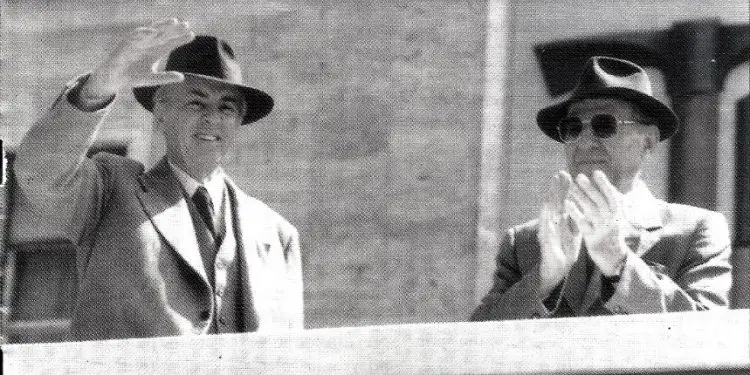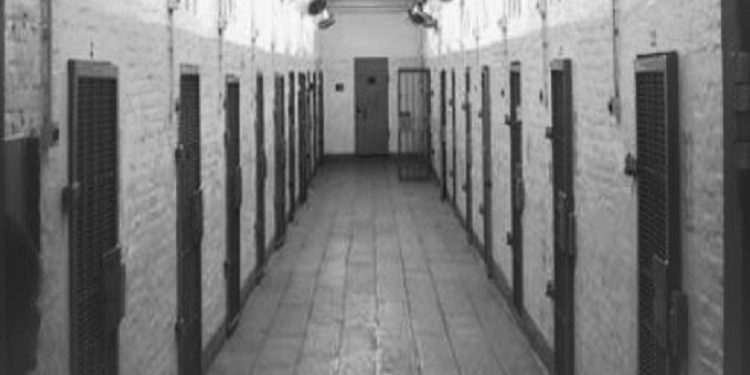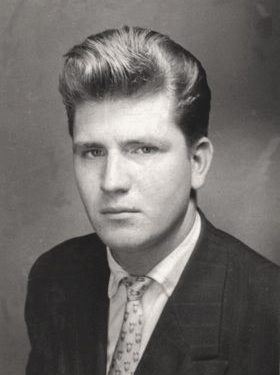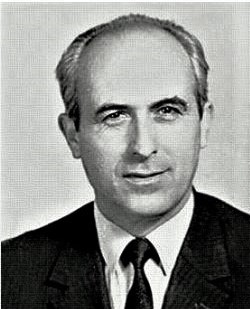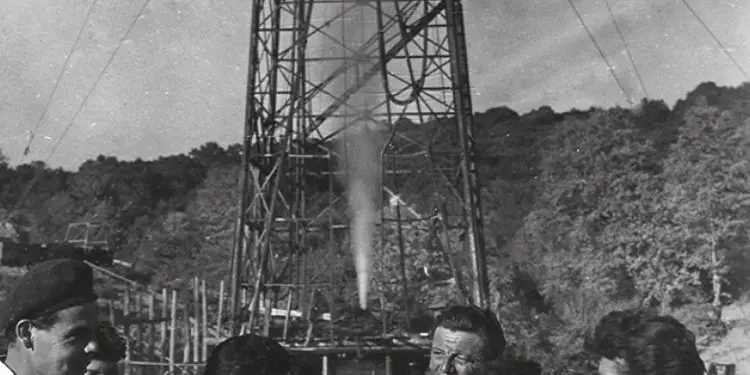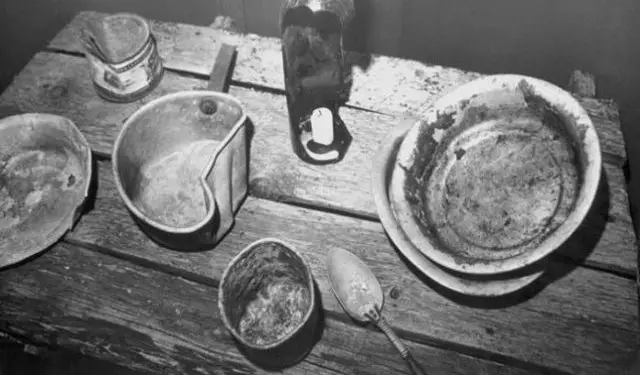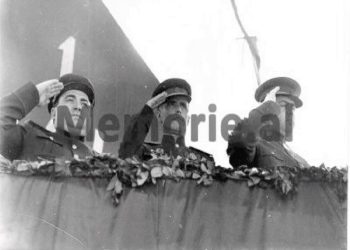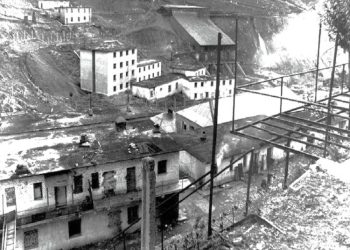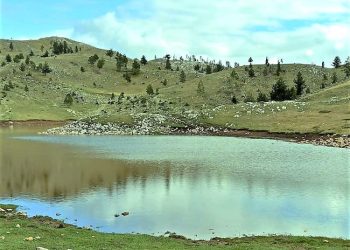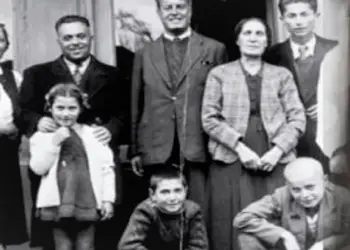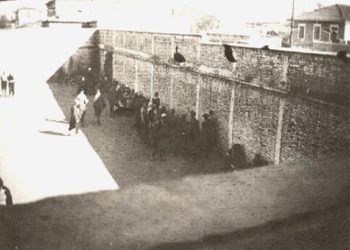By Petraq Xhaçka
Part thirty-four
Memorie.al/ The purpose of this book is to join the efforts made to present the truths and horrors of the communist dictatorship in Albania. The main purpose of the book is not to show our people or anyone else, that we oilmen have been innocent, because this has become known from publications in our press, from foreign televisions, as well as from direct meetings with the International Forum and the Albanian Human Rights. The author’s desire, is that through this story, together with other stories, fight any manifestation in any form, even moderate, that he may have to create a communist society. I think that even through this bitter personal history, the cruel, treacherous and overbearing face of Enverism will appear, that for half a century, held the knife with the tip in the chest of the Albanian people, with a pine eye, intercepting the movements for salvation from the outside, or rebellion of the people themselves, ready to push the knife to the heart, at the first movement. The events are set in the economic fields where it has appeared most strongly, such as the oil and gas industry, where I was fortunate to pour my energies, for a lifetime, and become a participant and witness in those events. All the events that are written in this memoir are true, not only without any exaggeration or embellishment, but perhaps, I don’t know how much I was able to present the terrifying force of the events that took place in that decadent system of socialism, where no there was no human feeling.
Continues from last issue
He informed us that we too would be working in that camp room, and explained that we would be paid based on the pages and lines we would translate. Of course, the payment was many times smaller than what was given to external translators. We were satisfied, not only for this income, however small, which met our needs to some extent, but also because we had escaped from those programs of the previous prison camps. In addition, here the food was better, since we benefited from the rates of those who worked for the prison administration, who sometimes enjoyed a little better food than others.
We were now a small team and did not have the various concerns, or problems that often arise between prisoners. We were not subject to collective political readings and other routine programs, but we had the sole task of completing the translation within the deadline required by the ministry. We were interested in working part-time, on the one hand to provide more income, and on the other hand, to retire from work and improve our knowledge of foreign languages. From the first day, we learned that after a short period of time, the prisoners we found there were on the verge of serving their terms and would be released. Both of us were brought in to prepare the ground for their replacement.
We all worked with our heads down and concentrated. In the first days, we did not exchange any opinions of a political nature, because we did not know each other. After a few days, in free conversations, when we went out into the yard during the evening break, the teacher and the mining engineer told us many details from prison life, and they served to make us understand that we were dealing with quite good people. and open. Over time, the scope of the talks gradually expanded and we easily told each other, even the history of our group. The evening walks, after a while, became very pleasant, because Dauti, the teacher, had a special talent in imitating Enver Hoxha’s speech. Dauti remembered in an excellent way, expressions from the speeches and diaries of the dictator, and he amused us, using the same tone, the same characteristic rhythm, the same bombastic accent, that the Albanian tyrant had.
We laughed with tears at the witty stories of this old prisoner. He was fluent in English and French. He imitated many other Politburo puppets, and we liked his performances so much that we made a habit of asking him for them every dinner, as a must-have entertainment program. Dauti filled us with optimism, when he told us with conviction that we would not stay in prison as long as we were sentenced, but would manage to return quickly to our families and that history would bring out the truth of our tragedy.
In that society, of prison interpreters, I had the chance to get to know very closely a young man from Tirana. He was then about thirty-three years old and had been in prison for many years! When he was a minor, his father was arrested on charges of treason in favor of the Yugoslav state. The father held the rank of colonel in the structures of the Ministry of Internal Affairs. Pretty post! Naturally, this boy did not know anything about the motives of the arrest, but his love and respect for his father, warm family life, did not give him any reason to believe the accusation.
After his father was convicted, no one could shake the boy’s complete belief in the innocence of his dearest person. He was overcome by hatred for the police, the government and Enver Hoxha. So on a day of celebration, when the parade was being organized in front of the Prime Minister’s building, where the leaders of the Party and the state were taking place, the boy, a high school student, together with a friend, jumped from the back of the Prime Minister’s building , to follow the parade from there. When they were passing near the tribune, the boy in his pezma, confesses to his friend that he had a dream to kill Enver Hoxha. After the parade, his classmate went and reported to the Interior Branch.
The child was immediately arrested and as a result, he was sentenced to a full twenty-two years of political imprisonment! That poor guy didn’t even have a weapon or anything else to make his dream come true, and he wouldn’t be able to, because the dictator was guarded by extraordinary measures of the secret police and units of the Republic Guard.
When I met him, the boy had served nearly two decades in prison and was in the last days of serving his sentence. For years, he worked in this translation office. Foreign languages, English, French and Italian, the boy learned in prison, self-taught, but at a very good level. He learned these languages that way, without courses or books, because they were completely forbidden in prison. If a prisoner was found to have a piece of paper with foreign words written on it, he was punished, as a minimum, with one month of heavy prison regime.
Most of the prisoners who learned foreign languages achieved this by learning the words during breaks, during walks or staying in the yard, with people who knew these languages professionally. These types of students would go aside and repeat the learned words to them in a low voice. Or often, they did this while drinking coffee, which they prepared in the fire of the opings, which the command gave to the prisoners to wear. Thus, the opings were always the object of robberies at night, when the prisoners were sleeping, because they used to make a fire for coffee, or to cook food.
This young man died in prison. He was quite wise and behaved wisely. For years, you had not left organizations and state leaders without writing to them, both in the time of Enver Hoxha and Ramiz Ali. He simply asked that he be given at least the opportunity to live with his father, who had now turned into a childhood memory. He requested that both of them be locked up in the same prison ward, but the communist administration never considered his request. He was never granted his minimal wish, to meet his father at least once, with who he was in the same prison system and under the same political regime.
For twenty years, father and son, lived in the same buildings, in the same dormitories, walked around Albania, through the same camps, but never at the same time. No, they did not give them the opportunity, even to see each other once, and to feel in each other’s eyes, the boundless love that tormented them both. The mother, who wandered from one camp to another, from corner to corner of Albania, brought the son the words of the father and the assurance that the old man loved his son very much, and the mother transmitted this fire to her husband, from the son, now become a man
After several months of work, in the translation office of this department, all five people we found there were gradually released. I don’t know where the boy is now, whose story I just told, but I can imagine with how much longing and tears, the two have met, father and son?! And I am convinced that the father’s concern for his son was greater, especially under the hammer of thought that the son paid for his love for his father with the most beautiful age of his life. Now we were left there, only the two old oilmen, Enrikoja and me. But only for a little while. The Directorate of Prisons, on the eve of the New Year 1990, transferred us to another department, to the New Prison of Tirana.
Before we resumed work, we spent several weeks on the first floor of the prison, in a special room for political prisoners, as a temporary place for those who were transferred from one camp to another. Layers of boards were built there, on three floors, so we slept three people, one on top of the other, while on the side, prisoner from prisoner, there was no separation. In that small room, over time, we managed to squeeze in about thirty breaths, and it seemed as if you would suffocate from moment to moment.
By the time we mourned, we were only twelve prisoners. We spent the night there, we spent the day there. We had only one hour of ventilation, out of twenty-four in the day, with the right to walk in the prison yard. We were just like in the dungeon. Days passed in difficulty. We began to worry, why this long interruption was created, and we were not resuming work. Had the bosses changed their minds and destroyed the small cell of translators?!
By mid-January 1990, thirteen new prisoners were brought to us in the hangar room. The young guests were among those first daredevils who tried to topple Stalin’s bust in Shkodër and were arrested immediately, overnight. These were the first sparks of the explosion of that popular movement, which later raised all the people to their feet and overthrew the communist dictatorship. We got to know each other and got close quickly, with these “first swallows” of freedom.
The word swallow gives you a new image, but some of them were also old. We were especially drawn to their humor, that well-known Shkodran humor, but also the optimism they brought us there. Their historic act of overthrowing communism increased our respect for them immeasurably. In that room, where no news, no new announcement penetrated, we learned at length, about this great event, of the famous city, of its enthusiastic and freedom-loving people.
And the people of Shkodra, for their part, became interested and learned, in general terms, the truth of our tragedy, which they had heard on the radio and television and had read in the newspapers, but in completely different colors, with the distortion of ordinary punist, of reality. They expressed their regret for our misfortune, as well as their hatred for Enver’s system and communists, who had caused so much trouble to the people and the country. The brave people from Shkodra kept their morale high and did not stay without telling stories or beautiful barcaletas, of all kinds, of the province’s humor. Now, the dark room of that hated prison was resounding with shouts, with laughter, so much so that we could not believe that we were still in prison, or it seemed to us that here, our release was ripe, that dream that would not leave us , not a minute out of mind.
At the head of these new guests was Dede Kasneci, who will remain unforgettable in my memory for the rest of my life. He slept next to me and Enrico. We had a blanket as a layer underneath, because there were no mattresses in the prison. In the conversations with Deda and his friends, we saw their determination to continue the path they had started. They felt it was an honor to have been arrested. With great conviction, Deda told us that communism’s days were numbered.
To be honest, in those moments it still seemed to us like a distant dream and their faith, completely excessive. But they were absolutely right. The events in the East were rolling very fast, towards the historic hour of the collapse of the communist system. They brought into our prison a new spirit, which we had not experienced before; loud protest. Every time they demanded a right, they kicked the iron door of the dungeon. From their kicks, we got two air rights a day and both for a longer time.
One day when we were out in the yard, they made a cloth ball, and we started playing football. And then this was put into our program and we ran every day, behind the cloth ball. This was a new, extraordinary sight for Albania’s prisons, but the leaders of the country turned a deaf ear and a blind eye to these small “alleys” in the yard of their building. The days spent together with the people of Shkodran, who overthrew Stalin, are unforgettable.
They brought beautiful life, made us young too, made us optimistic, so much so that we had never been before. We laughed the loudest, we shouted as children, when we played football and especially when we fell to the ground, since our legs couldn’t take it anymore from fatigue. The bodyguard, who stood behind the machine gun, up there in the tower on the wall, came to us by himself, from the few rays of light that were spreading over our country, for a new future, for a future with democracy, freedom of speech and press, for a future with justice, for a country where human rights would be recognized and enforced and the laws would not make the people of the Security, the investigation, the prosecution, and the formal courts.
We thought that these were the rays of that great illumination, which would come and forever remove the black clouds that had plagued our country for decades. Then, we were taken to the second floor, where the special investigation had been, which I described in a few chapters before. It was an ordinary room, where we had two desks and a television set in the corner. The command had taken measures to bring packed all our books and manuscripts of translations, which we had left at the “Ali Demi” camp. Although clad in thick iron mesh, we liked the large window that looked out on the side of Special Department 326 for quick interventions.
Adjacent to the first room, there was another room, where they had placed a bunk bed, which would serve as a bedroom for me and Enrico. The bed was furnished this time, with two straw mattresses, sheets and blankets. Next, there was a third room, empty, which remained open the whole time. On this floor, on our side, there were other rooms lined up, but they were kept locked, while on the other side of the corridor, there were the dungeon rooms of the special investigation, also locked.
Who knows how many had spent terrible days there awaiting execution? No one entered or left there, except for the guards and the command people, who came to check us. The corridor was long, about twenty-five meters, not disturbed at all and we used it, for walking, rather for gymnastic exercises. We made about a hundred and fifty round trips a day in it, end to end. Since Enrico started having some heart problems, he did more hiking than I did, in order not to allow the disease to progress.
The events of Shkodra and those of other cities, which happened later, gave us strength, vitality and confidence for our future. Although we were on the second floor, we asked the command to allow us to go and do it, together with the arrested from Shkodra. The command allowed us, and we increased the violence and started staying in their room for a long time. That small, dark and dirty room, to Enrico and I, now seemed pleasant and relaxing.
Complete one request, I make another; we were able to get some of the Shkodrans up to our floor to watch the TV there. The policemen had now begun to make concessions, and they were no longer the first ones, because of the fear of the bosses, they were very rigid. To get from the first floor, where Deda and his friends were, to the second floor, where we were, the police had to open two pairs of iron doors. And they didn’t object anymore, they opened them!
After four years of investigation and prison, for the first time, we were given the opportunity to watch Italy’s program on television, which was rebroadcast by Tirana, from the Daji mountain repeater. But often, our TV also received Italy directly, with a piece of room antenna. This, of course, was still forbidden, but as soon as we heard police footsteps, we changed the channel. In the last period, some policemen also approached us, and asked them to come to our room, to watch Italian TV shows, although they did this with great fear, lest any of their superiors find them there. Our separation had become like a happy oasis, inside that big building, which produced only fear and suffering. We now had the right to go outside for airing, once a day, for an hour, in the prison yard.
During those working days in the translation office, together with Enrico, we started to demand our right. To the director of the prison and the general director of prisons, when they rarely came to see the work we were doing, we made requests several times to send us representatives from the General Prosecutor’s Office, so that we could present to them all the truth of the process ours and ask them to redo the trial.
No one answered our many requests. Complete silence! But we insisted for a long time and finally, they were forced to bring a prosecutor from the Tirana branch. We spent several hours to present to him the whole truth, how our investigation in Fier was developed, how violence was used against us, how all the different depositions, which we did separately, were coordinated and systematized members of the so-called “enemy oil group” and how the laws and rules of the investigation were violated, where no representative of the prosecution participated in a single session. We showed him how the protocols that we signed every day were not maintained and preserved, according to the rules. The prosecutor listened to us, asked some clarifying questions and left. We waited for a long time, but again, they did not give us any answer.
It was clear that redoing an open trial in front of the people, as we were looking for, would be an extraordinary discredit to the leadership of the Party and to the organs of the dictatorship. This time, we were determined not to back down under any pressure, to tell the truth. Now, there was a much more favorable political situation in the country, to make such a step. But the power was stinking at the top, as the fish stinks from the head, because they were the organizers of this tragedy themselves and could not accept such a concession.
Now, they were more careful, to isolate us. We didn’t get any real news about the happenings in the country. The television continued the policy of deception and lies. We had meetings with family members, but in these meetings, now, the officers of the prison command stood watch over us and did not allow us to start any political conversation. Memorie.al
The next issue follows




